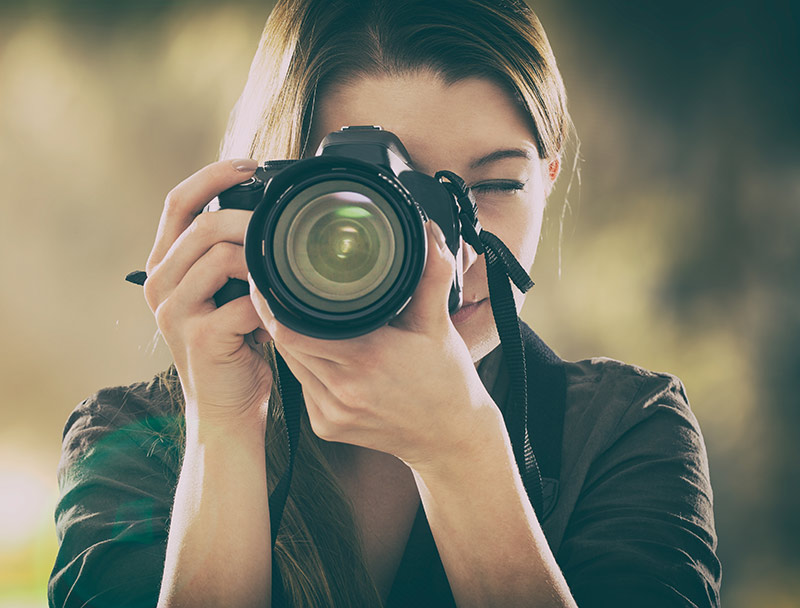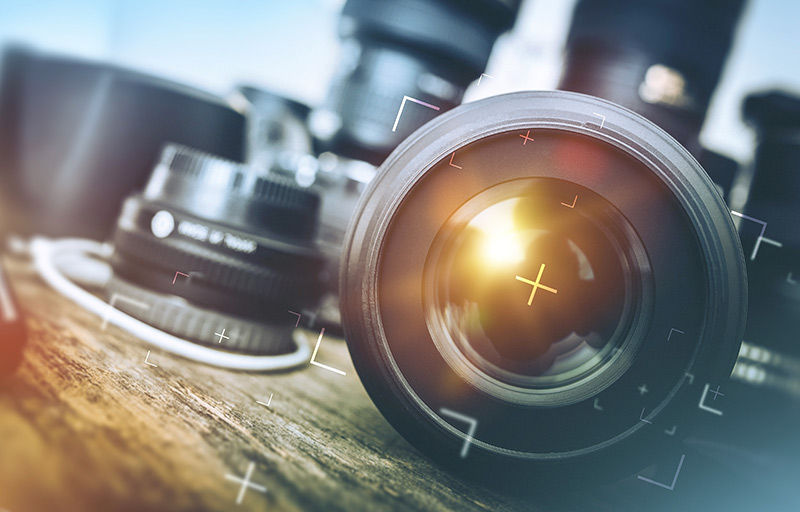A career in photography, especially in our current buyer’s real estate market, is one that can be both profitable and meaningful.
Whether you’re taking pictures of memories that someone will cherish for a lifetime or helping someone to find their dream home by taking pictures of homes for sale, the work that photographers do is important and pays well.
If you would like to launch a photography career, one of the most important things that you will need is the proper gear to do the job. You can’t just show up to a wedding with your iPhone 12 or your Samsung Galaxy S20 and think that will do the job (or that anyone there will ever hire you again), after all. What gear do you need, though?
If you’re looking to get into the photography business, here are 10 essential pieces of gear that you will need to have and know how to use.
Camera
Obviously, the first thing that you will need is a camera. Not just a cheap camera or the camera on your cell phone, either. For a professional photographer, you’re going to be looking at cameras around $700 and up. Most professionals use well-known brands like Nikon that cost easily in excess of $1,000, and these prices usually just include the camera. If you’re looking to find the best professional camera for beginners, you really need to turn either to professionals or to educational courses like the one Stratford Career Institute offers. Stay away from forums; they are infamously clique-y in the advice they dole out.
Tripod
Now that you’ve got your quality camera, you may notice that it is somewhat heavy (and that’s before we begin to add lenses, flash modules, and other accessories to it). If you’re going to be taking shots for a long time, which is common in wedding photography, or if you’re just hoping to get the perfect photo and need to steady your shaking hands, a tripod is the easy solution. Decent options begin around $50, depending on how tall a tripod you’re looking for.
Lenses
Most professional photographers eventually will amass a collection of lenses, all of which do something different. From the fish-eye lens to the wide zoom lens and even telephoto lens, there are dozens of different lenses. A professional will choose their lens with all the care of an expert fisherman choosing his bait or an artist choosing their paintbrush.
SD Memory Cards
In the old days, I would suggest carrying plenty of extra film. However, we live in a world where almost no one uses film anymore. Instead, photographers take pictures using digital cameras. Digital cameras all use some sort of SD memory card, though the size of the card will vary depending on the camera you purchase. Once you’ve picked out your camera, be sure that you carry enough SD cards to take hundreds, perhaps even thousands, of pictures, depending on what kind of event you’ll photograph.
Camera Strap
Much like the tripod, the camera strap simply makes life easier for you, especially if you’re carrying the camera yourself and taking pictures from a standing position. A camera strap can make carrying a camera for a whole day’s worth of photographing a somewhat more comfortable experience.
Camera Bag
A camera bag is an essential tool for anyone looking to be a professional photographer. It allows you to move your lenses, camera, and other camera gear without risking damage (specifically scratches) to lenses, and it ensures you will have a safe space for all your equipment and accessories. A padded camera bag with a sturdy strap is also essential to traveling with your camera.
Cleaning Kit
The lenses on your camera and, indeed, any part of your camera made out of glass, will eventually need cleaning. Having a cleaning kit with spray and a lens rag will make the process simple and ensure you don’t leave behind any residue or fibers on the lenses.
Charging Accessories
Modern digital cameras mostly use rechargeable, internal batteries for their power source, unlike the analog cameras of old. If you’re using a camera that relies on some form of charging cable for battery power, it behooves you to bring along a portable charger. Luckily, portable chargers are becoming commonplace, and you can find a quality one that stores up to 25,000mwh of power for less than $40.
Light Meter
If you’re going to be taking pictures indoors, you may need a way to discern the amount of light in the room—particularly, in the important parts of the room. A light meter will help you better understand how to change your lenses and exposure and even whether you should use a secondary flash or change the lighting in the room, ensuring quality pictures that don’t wash out everyone and everything in the background.
Education
Finally, perhaps the most important thing that you will need to make a living (or at least turn a profit) as a professional photographer is an education. You need to understand what you’re doing with the various lenses and how to take long-exposure shots.
Additionally, a class or two on how to use most photo editing software probably won’t go amiss. You can get started at Stratford Career Institute, which offers a Photography Distance Learning course that will be perfect for your needs .
If you’re looking to start your career in photography—a career that many find lucrative—you need to understand what you’re doing. Your career won’t last long if you don’t educate yourself, and an online course can get your career aspirations off the ground.
Develop Your Photography Skills

Enroll in our distance learning class today to take your photography skills to the next level!


